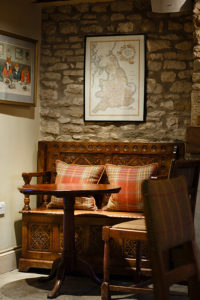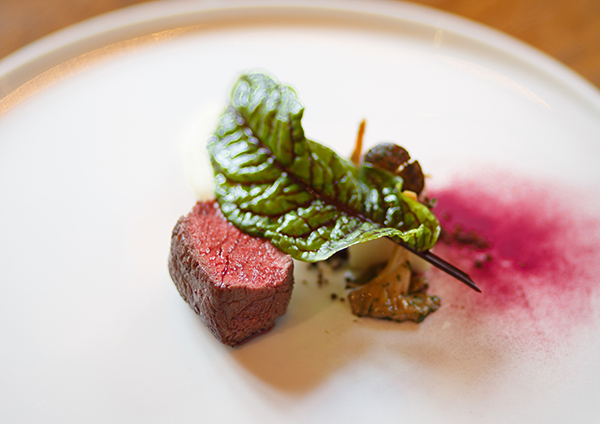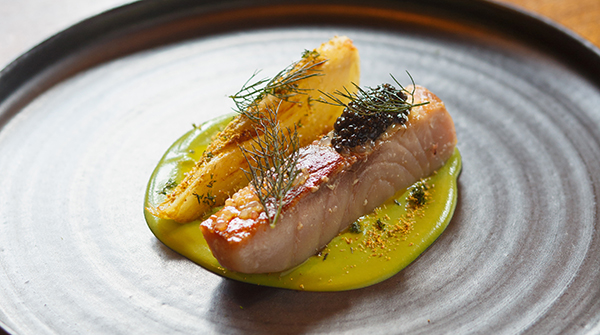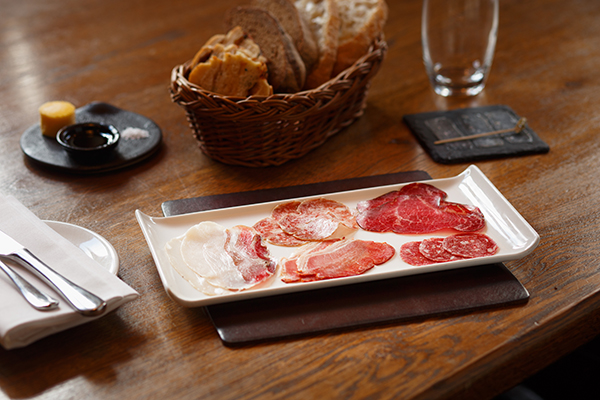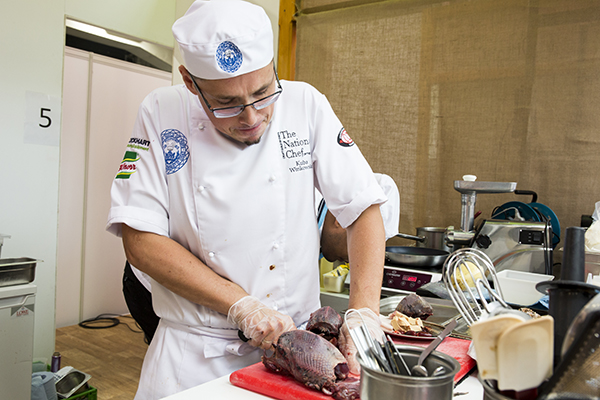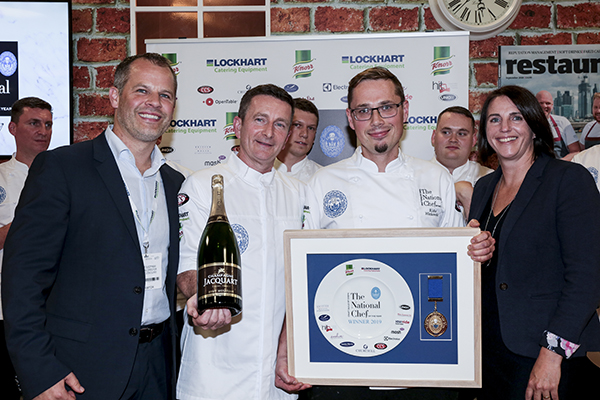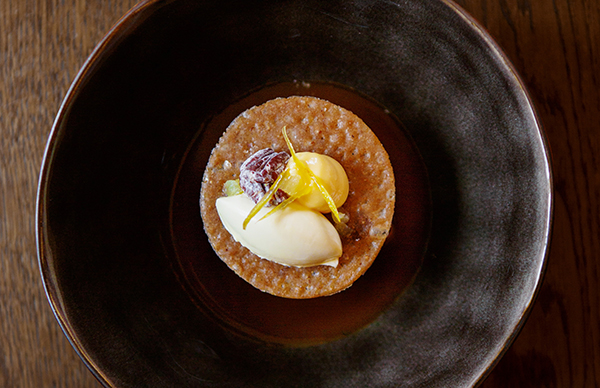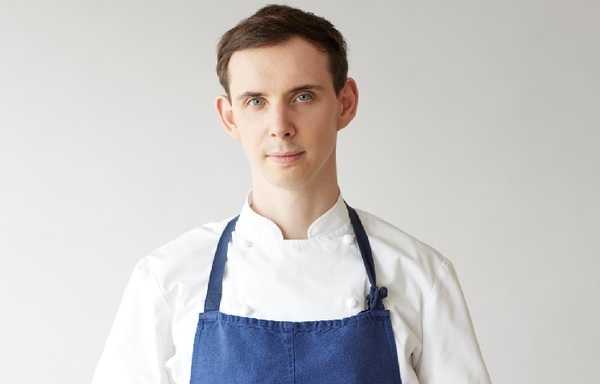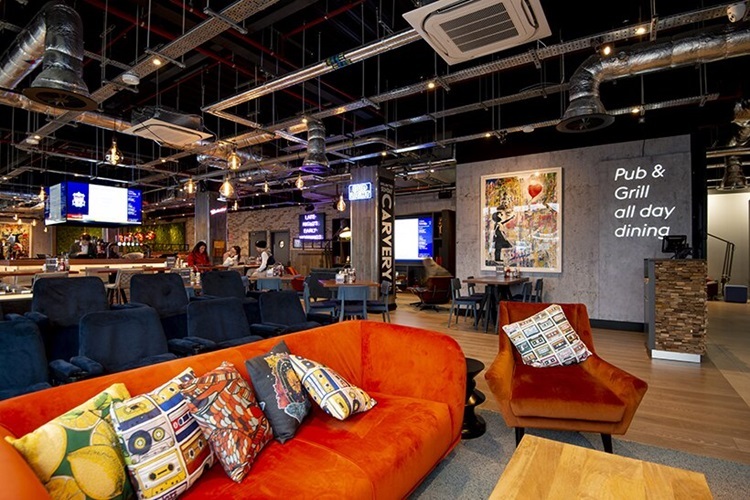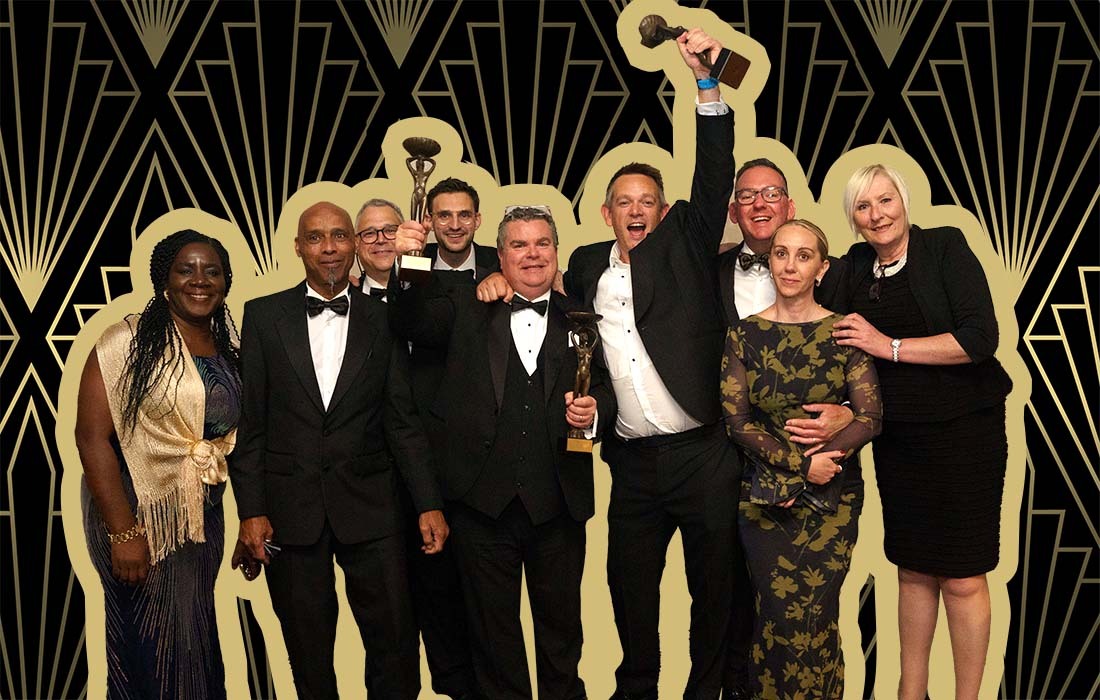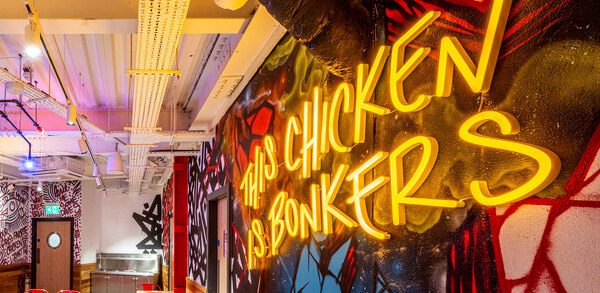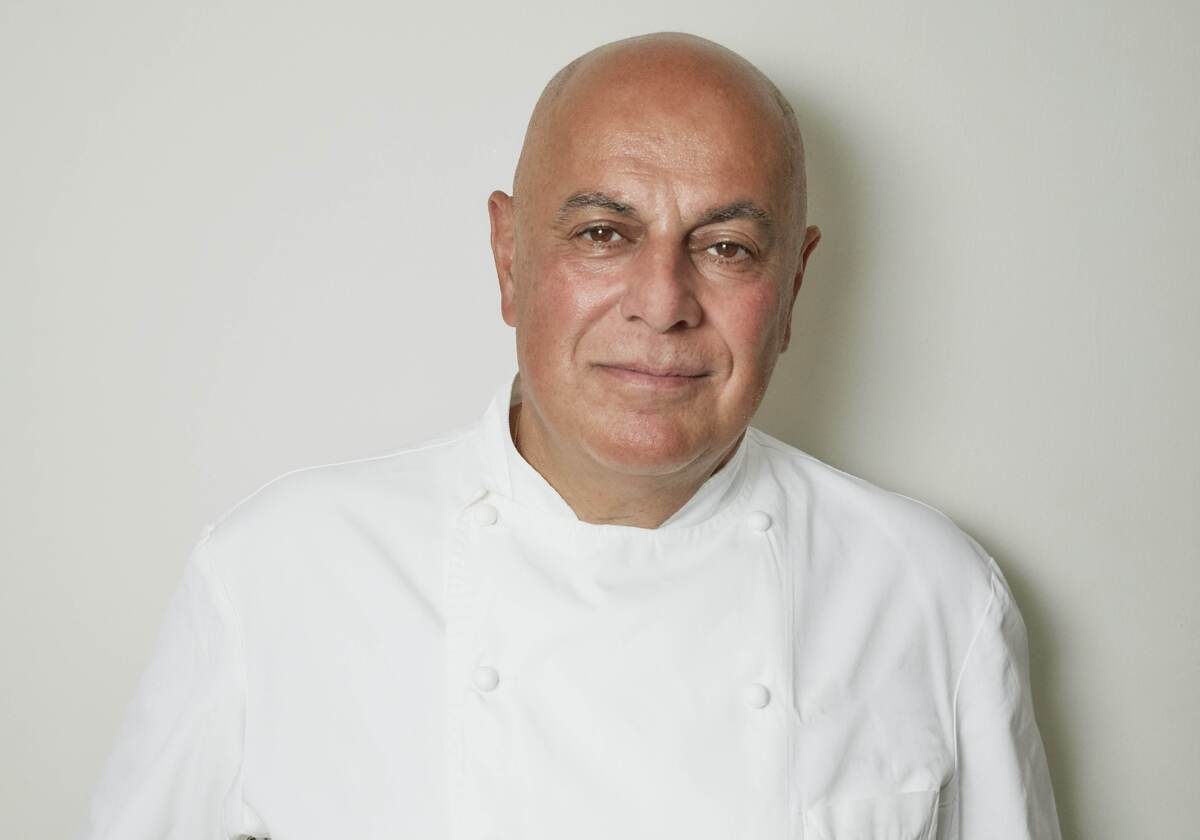National Chef of the Year: Kuba Winkowski
Raymond Blanc and Gary Jones protégé Kuba Winkowski speaks to Vincent Wood about his journey to winning National Chef of the Year
A month later, in the bar of the Feathered Nest Inn, home to Amanda and Tony Timmerâs three-AA-rosette restaurant and hotel, nestled in the idyllic Cotswolds village of Nether Westcote, and his exhaustion from the competition appears to have faded away. He is back at the pass, buzzing from plates to projects to media calls in the UK and abroad.
In his native Poland, Winkowski bounced from briefly studying mechanics to a course in financial management, before eventually setting his sights on Britain after a stretch of travelling. âPoland was going to join the European Union in May 2004, so I came in April. I knew the language, I knew some friends, and because of the EU it became easy, so that was all kind of an obvious choice.â
He arrived without much of a plan, looking for an opportunity, but more than willing to accept that he and his partner â" now wife â" might have to turn back if they couldnât settle in the country. âLuckily,â he says âI was living in Kent, in Thanet, and my friends said there was this great college with a very good reputation. So I went and they said no problem, it was free. I was like âReally? Itâs all free? All of this?â I was really sort of gobsmacked, so I enrolled and I started in September 2004.â
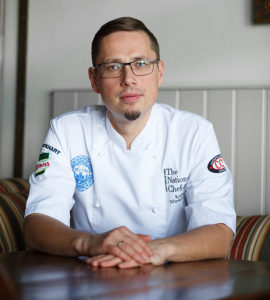
âI was really driven, really focused. I was finally doing what I really wanted to do and what the UK gave me in college â" well, I found it incredible there was a place where there was £3m spent on brand new kitchens, new floors, all the equipment. I was really buzzing, because in Poland things like this didnât exist. But because I was driven and I knew this is what I wanted to do, I did a lot on the kitchen side, pastry side â" I did whatever I could. I was on five days a week, nine to whatever, looking to put my fingers in any pie I could.â
Reaching for the stars
Stages at Le Gavroche and Rhodes 24 in London followed, but Winkowski had already decided he wanted to stay out of the capital. He wrote to every two- and three-Michelin-starred restaurant he could, and eventually Belmond Le Manoir aux QuatâSaisons in Great Milton, Oxfordshire, invited him for an interview. He went on to stay for two and a half years â" learning along the way the often punishing nature of life on the line. âAfter college you come out thinking you know everything because I was the best student, I was this, I was that, but the reality was completely different.â
His time under Raymond Blanc and executive chef Gary Jones â" who would later hand him his National Chef of the Year award â" completed his education, both in developing his skills and his philosophy. âThe garden, how to treat the ingredients, how to get the best out of them. You see Raymond Blanc and Gary Jones and theyâre both really inspirational people. Itâs great to be around them, especially Raymond, who is completely crazy; Gary, on the other hand, was the hard one.
âI finished in 2010, so itâs eight years gone now and I actually realised in the last four years what it gave me. At school you remember your strictest teacher; you donât remember the ones that were easy. The one that was strict gave you something.â
The two-starred Le Manoirâs commitment to skills stayed with him. At the end of his time there, he moved to the Feathered Nest, where he is now head chef and drills down on the importance of keeping his chefs involved in every step of the process. Butter is churned on-site to accompany homemade breads and pickles. Whole sturgeon are bought in and sliced down for their meat and their eggs.
Winkowski says of Le Manoir: âWhat I got there stays with me now and it always will. Itâs an amazing place for training, because itâs a massive kitchen and you do everything. You do suckling pigs, you butcher, you gut fish, you make bread â" everything.â
Nevertheless, one of the most impressive features of Winkowskiâs offering are the award-winning cured meats that hang in his specialist fridges â" mad inventions he has gutted and rewired to create the perfect conditions for the process. He has developed the recipe for each of the meats himself, with dedicated patience, season by season, as he attempts to cut his own path in the tradition.
The result, after two years of work, is tender, rich meats with a commitment to tradition but a touch of individuality in their depth of flavour. âIâm more traditional and classical. Charcuterie excited me because itâs an old art and for many, many years itâs been disappearing. Itâs been taken over by machines and taken over by factories. I think in years to come people might come to you because youâve got something which is gone. Even nowadays, with a slice of warm crusty bread with amazing butter, you might really give people an experience like theyâve never had before.â
Winkowskiâs dishes draw on the clean plates of Le Manoir, but he has developed his own style. His food is packed with strong, punchy flavours and takes on themes from across Europe â" his octopus carpaccio is a pure taste of Spain; a pheasant tortellini a rich call back to the cappelletti in brodo of northern Italy.
âThe kitchen of the worldâ
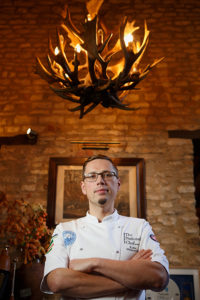
He also has a part to play in the UKâs multicultural offering â" another reason his cured meats hold pride of place on the menu. âPoland is massive on charcuterie, but back in the days of communism our produce never went out to the world. Italian, French and Spanish went, but Hungarian and Polish didnât.
âIf you go to a butcherâs or charcuterie shop in Poland, the selection is immense. Itâs as big as, or bigger than, in Italy. OK, itâs a different way of production because of the climate and winters, but the range is massive. And our bread! Our bakeries are like in France â" massive, with pastries and plenty of them. Thatâs the funny thing: you can see French influence or Italian influence, but love of a good bread and sausage and meat and smoked fish â" itâs actually what we do at home. So you say ravioli, but for me itâs pierogi â" whatâs the difference?â
Since winning the award, he has made national headlines in Poland, while UK immigrant portals, websites and newspapers went âcrazyâ. âItâs not like my neighbour knows,â he says, âbecause you need to be in the catering sector to know, but in Poland it was big news.â
Leveraging the exposure the award has given him, Winkowski has encouraged the search for talent across the channel. âIn Poland we talk a lot about Brexit, and it was important for me to spread the word in Poland not to be scared. I donât believe Brexit is going to stop anything, and we need chefs, we need people in the industry.â
The National Chef of the Year award comes with a responsibility beyond the plates â" to serve as an ambassador for the catering sector. Thankfully Winkowskiâs experience of the industry, his admiration for the UKâs catering colleges, and his strong belief in retaining skills make him a perfect standard bearer for the nation. âIt just opens so many opportunities, which is the reason I wanted to go and do the competition â" to break the mould.â
On winning the competition
Kuba Winkowskiâs victory in the National Chef of the Year came after months of planning and practice. âItâs a long processâ, he said at the time âand on top of the normal everyday job, to find those hours, to practice and design and plan, itâs not easy. The last few weeks were flat out, and I think the worst sort of feeling is, âoh I hope itâs not going to go to wasteâ.â
One key advantage was his willingness to give the competition another shot after falling short on his first attempt.
He added: âComing back for a second time really helped because this time I knew more about the venue and the whole competition experience. This meant I only needed to think about the cooking.â
Ultimately, he was able to provide what the judges were looking for â" which at the time Clare Smyth told The Caterer was respect for the ingredients with a focus on âprecision, cooking and flavourâ. Simon Hulstone, meanwhile, said ahead of the result that the National Chef of the Year was ultimately âan ambassador for the industryâ.
Winkowskiâs winning dishes
⢠Native lobster with oyster emulsion, celery, sea herbs, buttermilk
⢠Yorkshire grouse, cabbage, foie gras, quince, celeriac, seeds
⢠Sticky toffee with lemon, clotted cream, walnuts
Kuba Winkowski crowned Craft Guildâs National Chef of the Year >>
Chef profile: Luke Selby, National Chef of the Year >>



